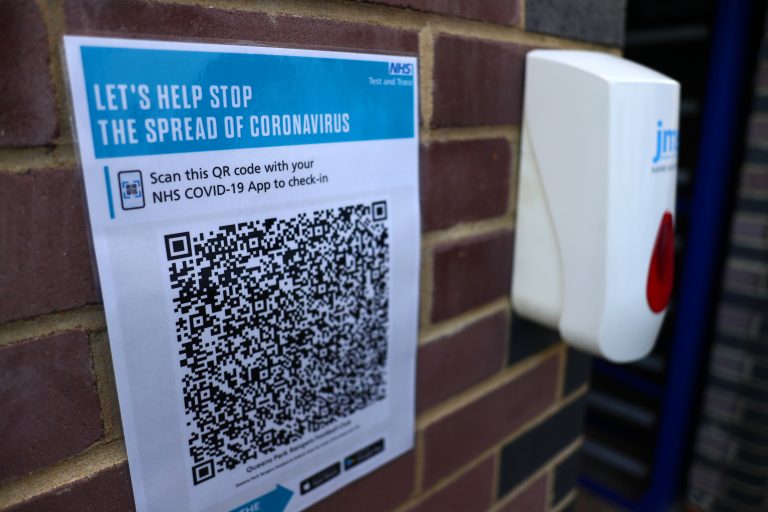France has announced it will require all public-facing businesses to set up contact tracing QR codes at their entrances.
According to Breitbart, based on a report from French broadcast BFMTV, the QR codes are intended to be used in conjunction with the TousAntiCovid (AllAgainstCovid) contact tracing app. The French government has a target of 15 million participants. Currently, 12.5 million people have installed the app on their phones. The app has tracked 99,000 positive cases and notified 54,000 traced contacts so far.
In the UK, the digital division of the National Health Service, NHSX, developed a similar app in conjunction with the GCHQ intelligence agency last year that stored data it collected on centralized government servers.
NHSX CEO Matthew Gould sought to downplay a slew of privacy-based objections that emerged when the app was launched, saying: “We’re balancing privacy with the need for the public health authorities to get insight into what contacts are more risky.
“It was our view that a centralised approach gave us some very important data that gives serious insight into the virus. We will keep it under constant review and if we need to change, we will.”
Success
You are now signed up for our newsletter
Success
Check your email to complete sign up
A group of more than 100 “scientists and researchers working in the UK in the fields of information security and privacy” signed a joint statement of concern about the app, noting that the data captured was de-anonymized. The group was particularly concerned both that the app’s functionality would persist after the pandemic ended, becoming a permanent form of surveillance, and that the data it tracked could become a target for “bad actors” in the forms of the private sector or hacking groups.
In April 2020, France asked Apple and Google to remove privacy restrictions on apps that prevented constant Bluetooth tracking if the data was to be moved off the device.

On Thursday, Dr. Richard Dawood, a UK “leading travel health expert,” told the Daily Telegraph he felt vaccine passports would become the new normal: “Regardless of how any of us feel about the idea of ‘vaccine passports’ for travel, they will ultimately be unavoidable.”
“Once countries begin insisting on proof of Covid immunity from arriving travellers, there will be little option but to embrace the challenge,” said Dawood. “We all long for travel to return to normal. But entry requirements will remain as long as countries feel insecure, perhaps until most people have been vaccinated worldwide. Social distancing, sanitisers, face masks on flights, delays, red tape, and last-minute changes of plan, will stay a fact of travel until then.”
On Jan. 12, the U.S. Center for Disease Control issued an order requiring all international travelers to provide proof of a negative PCR or antigen test for the SARS-CoV-2 virus that causes the disease the China-centric World Health Organization coined “Coronavirus Disease 2019” (COVID-19) no more than three days prior to the departure of their flight. The Order comes into effect on Jan. 26.
Last week, the Vaccination Credential Initiative (VCI) vaccine-passport scheme emerged in the United States, backed by a consortium of big tech firms such as Microsoft, Oracle, and Salesforce. Oracle’s Executive Vice President Mike Sicilia said it “needs to be as easy as online banking.” Describing Salesforce’s role as “to help organizations easily and safely customize all aspects of the vaccination management lifecycle and integrate closely with other coalition members’ offerings, which will help us all get back to public life,” Executive Vice President Bill Patterson said the initiative would be rooted in the workplace and corporate sales world.
The “SMART Health Cards” system the VCI cited as an example is an all-in-one “digital wallet” for testing and vaccination credentials. It is similar to the QR code scanning and contact tracing system notoriously used by the Chinese Communist Party in mainland China since the pandemic first began in late 2019.
In China, the use of the system persisted as part of daily life even after the Party lifted lockdowns and other measures when the first wave died down.
Follow us on Twitter or subscribe to our email list














